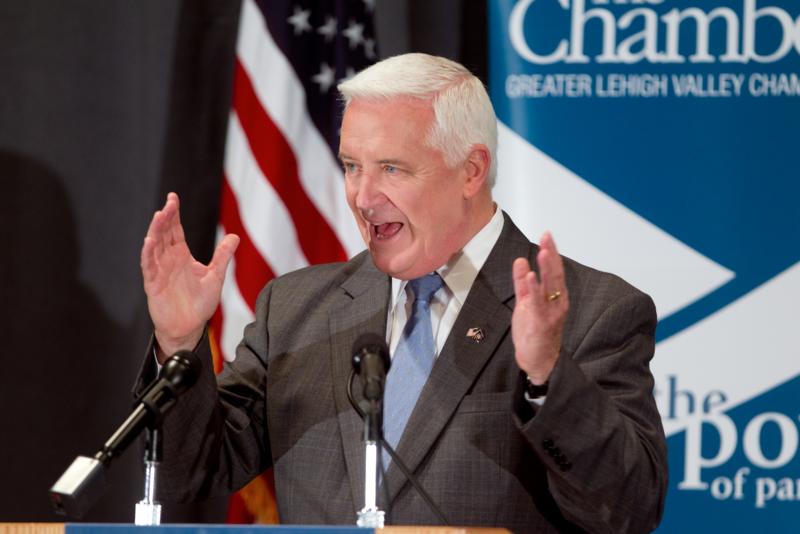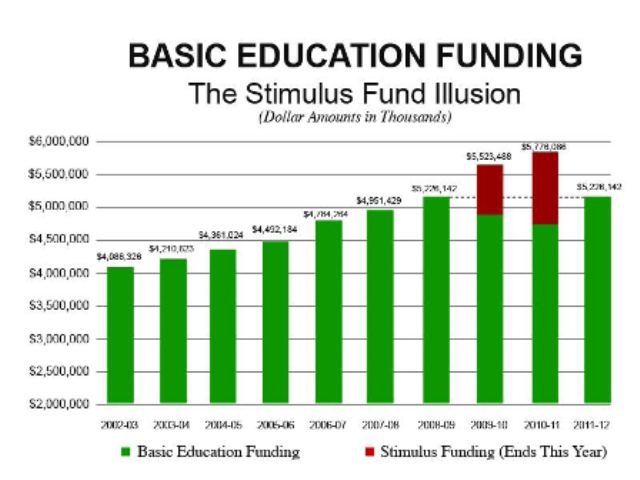Posts
Is it Time for a Name Change at the DPW?
/in News /by PAMattersA broad-based coalition is forming in the push to change the name of Pennsylvania’s Department of Public Welfare. A letter of support delivered to the General Assembly last week was signed by five former governors: George Leader, Dick Thornburgh, Tom Ridge, Mark Schweiker and Ed Rendell. It begins by stating, “Words matter. Names matter. Stigma lasts.”
State Senator Bob Mensch (R-Montgomery) is joining forces with Minority Leader Jay Costa (D-Allegheny) to introduce legislation that would change the name of the DPW to Department of Human Services. “Everyone assumes when you see the Department of Public Welfare that that is all they do. In honesty they do a lot more than just welfare,” Mensch explains. “It’s a department that doesn’t deserve a name that creates bias.”
None of the 67-counties uses the term “welfare” for its human services agency, and Mensch believes Pennsylvania is the only state government that still refers to a Department of Public Welfare.
“It really has a huge presence in our state and I think it would be appropriate to have a meaningful discussion around what that department does – calling it by its rightful name, which I believe should be Department of Human Services.”
The Mensch/Costa bill already has 20-cosponsors in the Senate and it hasn’t even been introduced yet. An identical bill being introduced in the House has 82-cosponsors. To save taxpayer money, Mensch suggests a graduate changeover whereby all existing supplies are exhausted before new ones are ordered with the new name.
The Campaign for What Works has also sponsored an online petition to help garner public support for the name change.
Advocates Fight to Save Cash Assistance Program
/in News /by PAMattersOn the chopping block this budget season is the cash portion of the state’s General Assistance program in the Department of Public Welfare. The $150-millon dollar effort provides more than 60,000 recipients with monthly checks of around $200-dollars.
Those recipients most often include the disabled, sick and those fleeing domestic violence. “General Assistance is the last knot of the safety net… many of those are persons who have no other means of support,” says Stephen Drachler, executive director of United Methodist Advocacy in Pennsylvania.
Numerous faith-based groups recently joined a diverse, statewide coalition to write the General Assembly in hopes of saving the welfare program.
Housing advocates are even adding their voices to the chorus. Housing Alliance of Pennsylvania executive director Liz Hersh says General Assistance is typically used for basic living expenses and homeless shelters are already stressed. She fears more people would wind up on the streets.
“As taxpayers, while it may be unpalatable to have a program like General Assistance, it actually saves us money,” says Hersh, noting that the aid actually keeps people out of more costly public programs.
The governor’s 1,000+ page executive budget (released in February) notes that eliminating the cash portion of General Assistance will allow the DPW to maintain health care for individuals who do not qualify for Temporary Assistance to Needy Families or Medicaid.
Governor Tom Corbett’s spokesman Kevin Harley tells Radio PA that federal programs will be there to assist the truly needy. “The state program was always above and beyond what the federal government provided, and many states have eliminated or drastically cut back similar programs because of difficult budget situations.”
Like the governor’s budget plan, the Senate budget bill does not include funding for the cash portion of General Assistance. “There is competition for limited resources,” noted Senate Majority Leader Dominic Pileggi whilie meeting with capitol reporters late last month.
But advocates say there is room for compromise, as they seek to preserve General Assistance for those most in need.
Governor Tom Corbett and top Republican lawmakers continue to negotiate next year’s state spending plan. The final budget is expected to spend more than the $27.1-billion proposed by Corbett in February, but less than the $27.7-billion passed by the Senate in May.
Governor Tom Corbett on proposed welfare spending cuts
/in Ask the Governor, Media, News, Video /by PAMattersGovernor Tom Corbett Not Budging on Surplus Issue
/in News /by PAMattersThrough the first eleven months of the fiscal year, the Department of Revenue reports that collections have outpaced expectations to the tune of $540-million dollars. Many lawmakers are ready to tap into that money to mitigate some of the proposed budget cuts. However, Governor Tom Corbett isn’t ready to use the “S” word… surplus. “I don’t know how you have a surplus when we know that Pennsylvania – because of the recession, because of the number of people who lost jobs – had to borrow money from the federal government, [and] owes the federal government $3.7-billion dollars as we sit here today.”
Governor Corbett’s comments came on Radio PA’s monthly Ask the Governor program, which is featured here in PAMatters.com. Corbett said he’s sticking to the $27.3-billion dollar framework he laid out during his March 8th budget address: “That allows everybody to plan based upon that number, and to make the difficult cuts, and I wish they didn’t have to make those cuts. I don’t want to have to make those cuts, but it’s necessary to get our house in order.”
Corbett has come under fire in recent months for the education cuts he’s proposed for next year’s budget. “We didn’t do this lightly, we’re not being hard-hearted about this, but we have a $4.2-billion dollar hole in the budget,” Corbett says, referring to the structural deficit that exists in large part to the expiration of the federal stimulus program. Corbett points out that basic education has been held at pre-stimulus levels (see insert).
House Republicans’ budget bill would restore $100-million dollars to the basic education funding line item, and account for an additional $380-million dollars for higher education. Governor Corbett’s original budget plan would have slashed funding for the State System of Higher Education, and State Related universities, in half. But House Republicans didn’t add to the $27.3-billion dollar bottom line – they instead trimmed an additional $470-million dollars in welfare spending. Asked about those projections, Corbett was skeptical: “Do I believe we’re going to find savings in the Department of [Public] Welfare? Yes. Am I going to find it at the rate, at the number and at the speed that we need to for one fiscal year? I have grave concerns about that. I’m a very cautious person.”
Corbett, House and Senate leaders will flesh out their budget priorities in the weeks ahead, in hopes of meeting the June 30th budget deadline. If successful, it would be the first on-time state budget in eight years.
Welcome to PAMatters.com, a new source for news and commentary from Pennsylvania’s capital. In addition to video, audio and pictures from the stories and events that affect YOU, you’ll also get some behind-the-scenes analysis via blogs from our award-winning staff of journalists.





